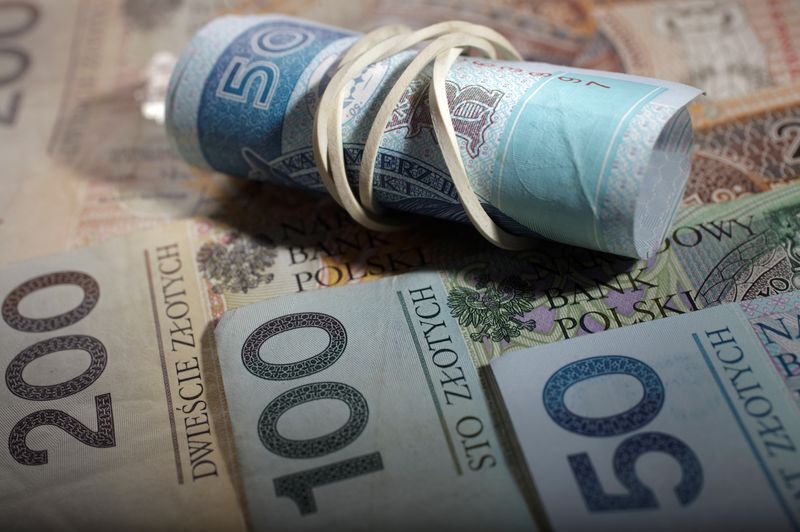By Miroslava Krufova and Jason Hovet
PRAGUE (Reuters) - The Polish zloty should lead gains among central European currencies over the next 12 months as it plays catch-up with its peers, a Reuters poll showed on Thursday, although the start of U.S. Fed rate hikes will take some shine off the region.
Expectations of rising U.S. interest rates and a strengthening dollar should continue to drag on central Europe now the Federal Reserve has flagged a March interest rate rise.
But with policy tightening already underway in central Europe, currencies have started 2022 with gains, led by a hefty 3.9% rise in the Hungarian forint and 2.4% increase in the Czech crown, as of Tuesday's close.
The zloty, up only half a percent to begin the year, will appreciate with an expected 1.7% rise over Tuesday's close, firming to 4.495 to the euro in a year's time.
"Generally all the currencies should benefit from tightening of local monetary policy," said Krystian Jaworski, senior economist at Credit Agricole (OTC:CRARY) in Warsaw.
"Still, the intensifying market expectations of tightening by the Fed and European Central Bank will limit the room for significant appreciation."
The National Bank of Poland, battling inflation that is already at a more than two-decade high of 8.6%, has lifted its main rate by 215 basis points to 2.25% since October. More hikes are expected.
Similarly, the Czech National Bank, the region's most aggressive in policy tightening amid the prices spike, meets on Thursday and analysts forecast a 75 basis point hike to the main rate, putting it above 4% for the first time in 20 years.
But rates should soon peak and the poll saw the crown, which hit its highest since 2011 in January, easing 2.1% to 24.8 to the euro in the coming year, a similar forecast to a poll month ago.
Hungary's forint should reach stronger ground in the coming 12 months after short-term easing in the first quarter. Analysts see the forint at 353.50 to the euro in a year, a 0.5% rise.
"No matter how strong the (central bank's) push to bring down inflation, the market's focus could easily wander to the upcoming risk events, creating some short-term selling pressure," ING said, mentioning Budapest's disputes with the European Union and an upcoming April election.

In Romania, the leu, a laggard in the region due to budget and political uncertainties while its central bank has been less aggressive in policy tightening, was forecast to ease to 5.00 to the euro, 1.1% down from Tuesday's close.
(For other stories from the February Reuters foreign exchange poll:)